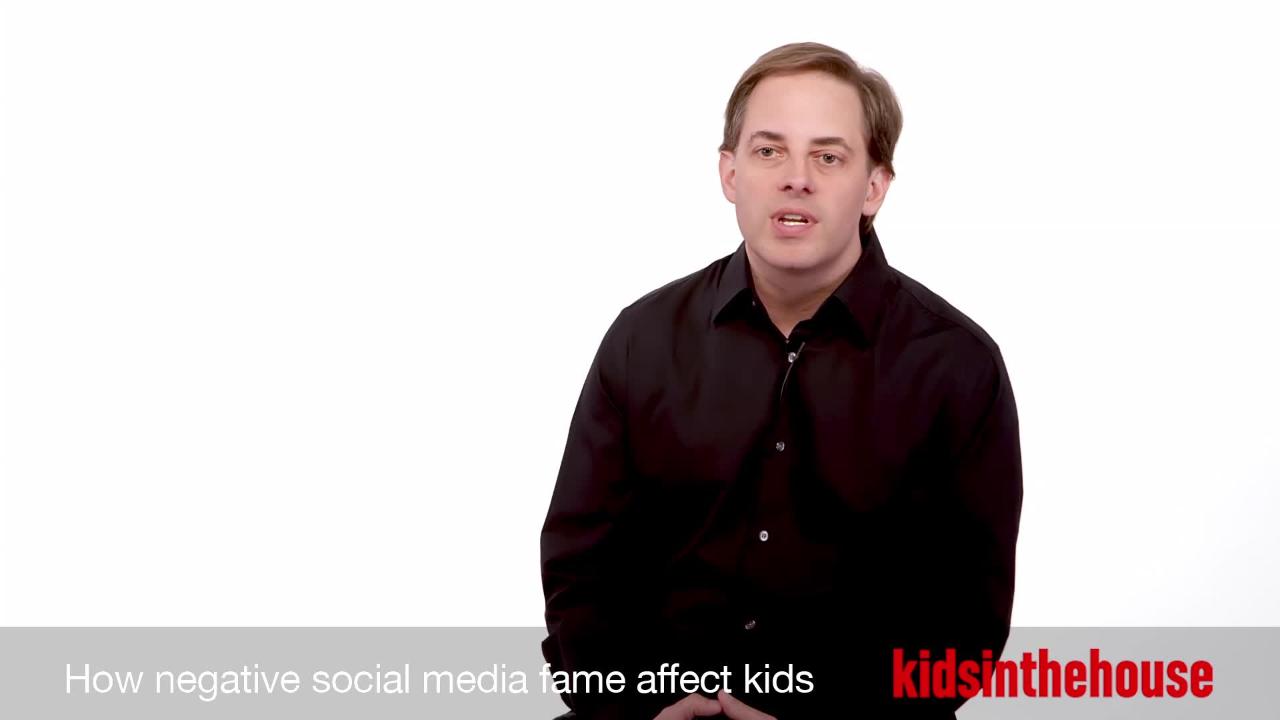How negative social media fame affects kids
- I'm a little bit worried about the message that kids are getting from the popular media and even some well-known political or entertainment figures about social media. We used to live in a world where kids were taught to connect with others and to truly make contacts that were about empathy and caring and true, genuine social connection. But, now, they're being bombarded by images telling them that they should become social media famous. Really, ways that they're being told that their value on this planet is measured by the number of their likes or retweets or followers. This is really dangerous, because when they see folks, whether it's the president of the United States or a popular music celebrity who seem to be getting a lot of attention and focused on their follower counts, that's telling kids that they should really be more invested in this false public display of who they are than offline interactions that teach them the skills they need to succeed at work, in their relationships, and, also, to feel personally fulfilled and supported. I really hope that kids don't feel that social media and their number of followers is a goal that they need to be too concerned with, because all of the evidence suggests that that kind of popularity actually leads to a variety of negative outcomes that will hurt them later in life.
Mitch Prinstein, Phd hopes that kids don't feel that social media and their number of followers is a goal that they need to be too concerned with, because all of the evidence suggests that that kind of popularity actually leads to a variety of negative outcomes that will hurt them later in life.
Related Videos
Transcript
Expert Bio
More from Expert
Mitch Prinstein, Ph.DProfessor of Psychology and Neuroscience
Mitch Prinstein, Ph.D. is a husband, a father, board certified in clinical child and adolescent psychology, and serves as the John Van Seters Distinguished Professor of Psychology and Neuroscience, and the Director of Clinical Psychology at the University of North Carolina at Chapel Hill.Mitch’s Peer Relations Lab has been conducting research on popularity and peer relations for almost 20 years, and has been funded by the National Institute of Mental Health, the National Institute of Child and Human Development, and several private foundations, resulting in over 100 scientific works, including a slew of scientific journal articles, book chapters, a set of encyclopedias on adolescent development, and even a textbook on the field of clinical psychology.Mitch is deeply committed to science and training in clinical psychology, having served as President of the Society for a Science of Clinical Psychology and the Society of Clinical Child and Adolescent Psychology, the Editor-in-Chief of the Journal of Clinical Child and Adolescent Psychology, and on the boards of the American Psychological Association, the Council of University Directors of Clinical Psychology, and publication board of the Association of Behavioral and Cognitive Therapies.He and his research have been featured in The New York Times, The Wall Street Journal, National Public Radio, the Los Angeles Times, CNN, U.S. News & World Report, Time magazine, New York magazine, Newsweek, Reuters, Family Circle, Real Simple, and elsewhere.




 GET ACCESS TO ALL PREMIUM CONTENT WITH NO ADS FOR $4.99/MONTH
GET ACCESS TO ALL PREMIUM CONTENT WITH NO ADS FOR $4.99/MONTH
Login or Register to view and post comments